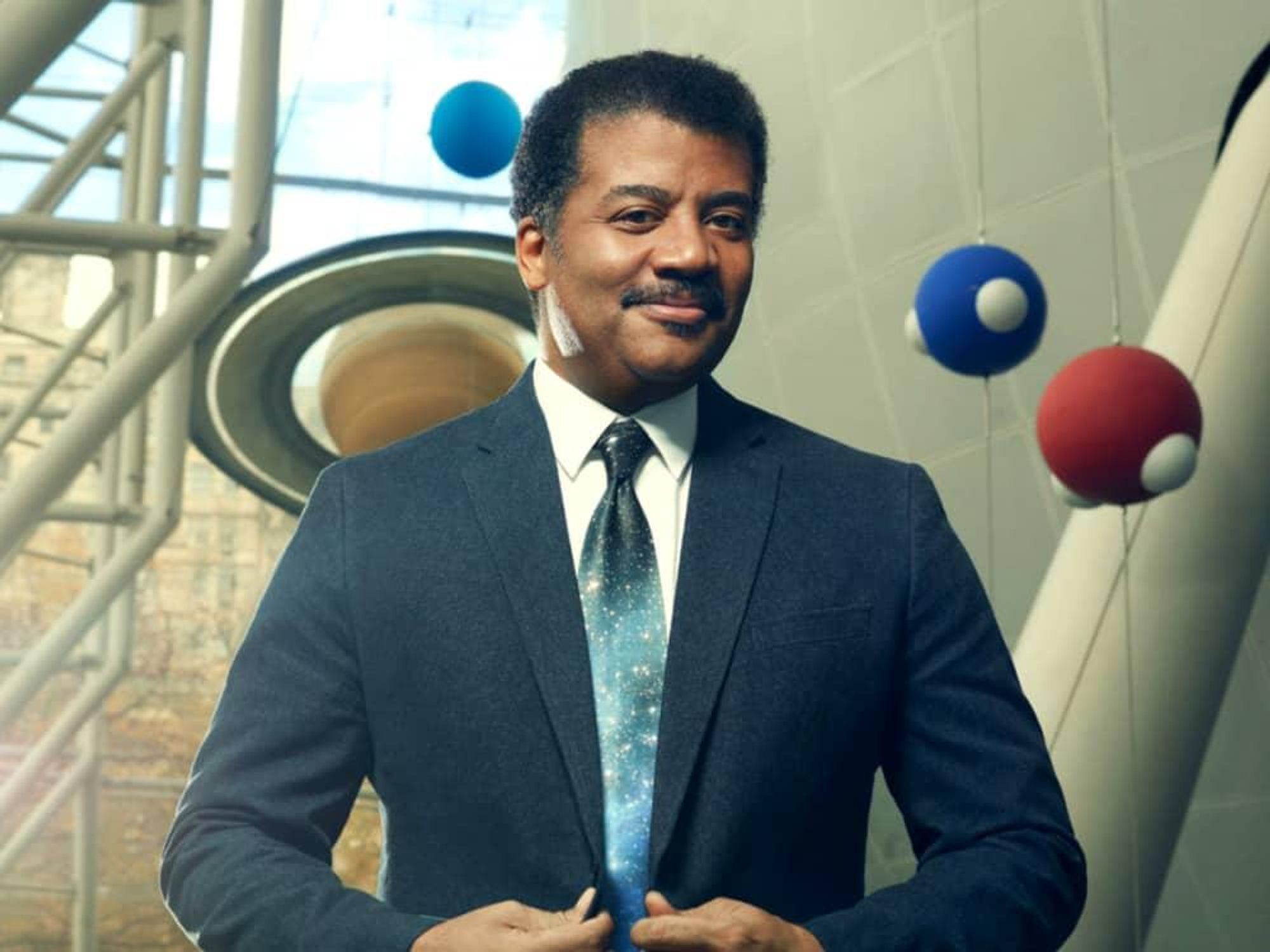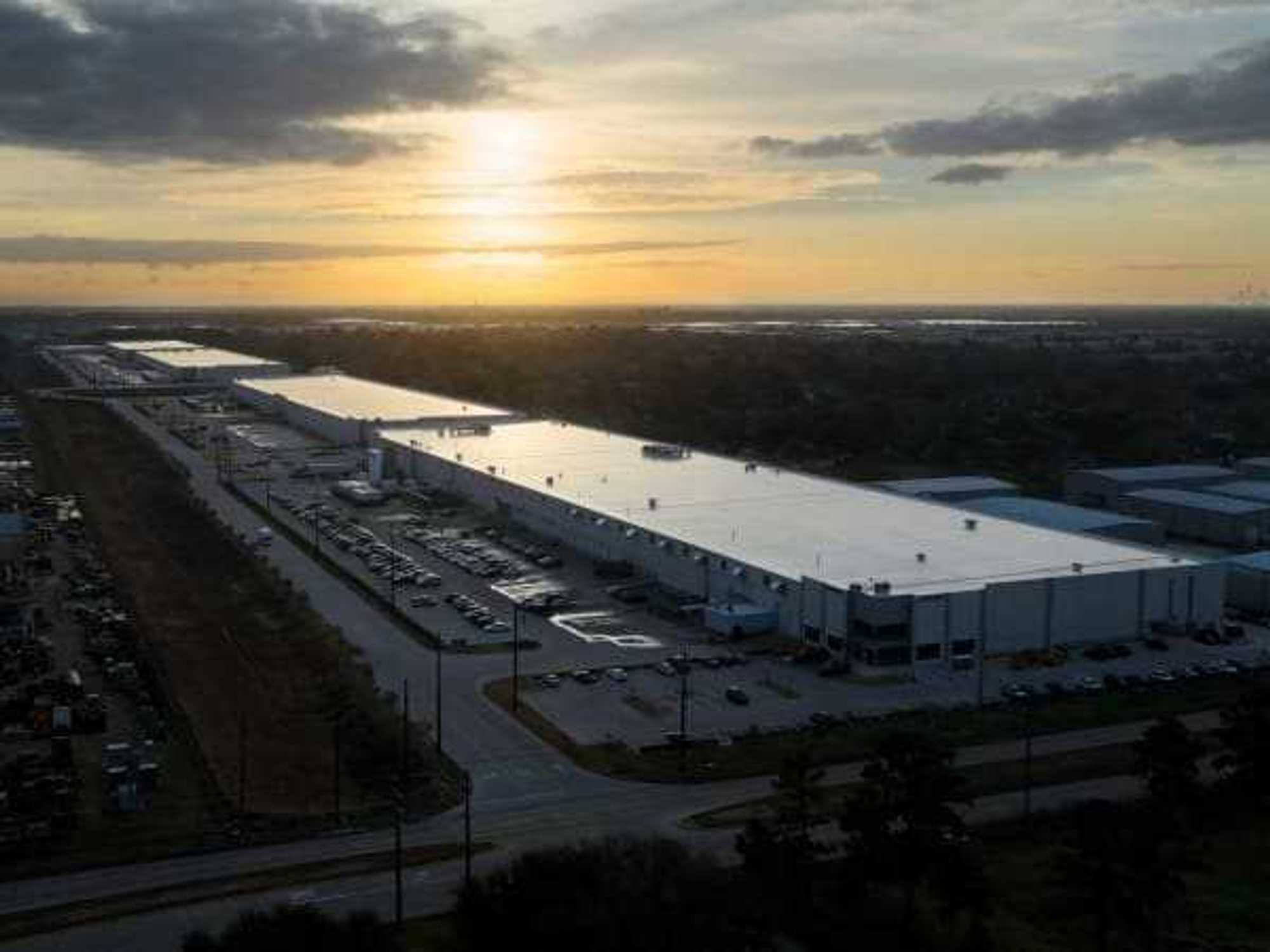the culturemap interview
Attention Houston: Celebrity scientist Neil deGrasse Tyson has a warning for you

Let’s face it: space may be stunning. The universe, in all its dazzling complexity, may be inspiring. But at any given moment, it could kill us all.
Neil deGrasse Tyson would like remind you of that simple — and alarming — fact when he presents his talk, “Cosmic Collisions” on Monday, January 15, at the Jones Hall for the Performing Arts. Recently dubbed “America’s top astrophysicist” by Forbes, Tyson is a bona fide pop culture star who’s widely credited for making the cosmos cool. He serves as director of the world-renowned Hayden Planetarium, hosts a national radio show, and has been a staple on the TV talk show circuit.
His rabid fans hang on every character of his Twitter feed, and pack his public appearances. There’s a Facebook page devoted to a (wishful) Tyson presidential run in 2020. His most recent book, Astrophysics for People In A Hurry, topped the New York Times best-seller list in 2017. He won over fans old and new, as the host of the rebooted version of Carl Sagan’s Cosmos: A Spacetime Odyssey, which secured 12 Emmy nominations and nabbed four. (Tyson is a protege of the late Sagan’s, and has assumed his cultural role.) He has become the voice, of sorts, of a generation that looks to science and reason. (Update: Tyson announced on Saturday, January 13, that Cosmos will return for another season in 2019.)
Tyson’s talk centers on how cosmic collisions affect Earth, and could even render life extinct. Fans can expect musings from his work in science and astrophysics, and Tyson will also host a Q&A. We caught up with the star, in advance of his Texas tour, which brings him exclusively to the Lone Star State in January.
CultureMap: Many of us are blissfully unaware that there are near-miss collisions with our planet all the time. Should we be more concerned?
Neil deGrasse Tyson: Well, “cosmic collisions” — for the purpose of this talk — will be interpreted very broadly. There are galaxies that collide — in spectacular, hundred-billion-year, slow-motion trainwrecks. There are particles that collide, and produce energy — in the cores of stars — that lead to supernova explosions. For the first time ever, we’ve been able to measure the collision of black holes, with a brand new kind of telescope.
And, you have the collision of asteroids and comets with planets. That’s the one that concerns us the most, because it can render us, you know, extinct. So maybe we should cover that one first, in the talk.
CM: It might be good to lead with that, yes. So, are you essentially saying to the layperson that Armageddon could be real — that one day, we may need Bruce Willis to save us from an asteroid?
NDT: [Laughs] There were actually efforts to get rid of satellites in orbit, by the Chinese, called “kinetic kills.” But that makes debris in space, and that’s a problem. The Cassini spacecraft, which had been orbiting Saturn for 13 years, came to end, so we collided it with Saturn, which was poignant. So, this is a celebration and exploration of all the ways that cosmic collisions matter, in our lives and in the universe.
CM: You’re known for calling yourself an educator. But you have 11 million Twitter followers. That’s quite the following for an educator.
NDT: My Twitter following is crazy high, and I don't understand it. And, I still want to warn people, ‘You know, you realize you're following an astrophysicist, right? Did you do this by mistake?’ I feel like putting a disclaimer out there every month or so.
CM: And yet people want you to run for president.
NDT: I’m deeply flattered by that, and it’s an awesome responsibility, because there are people looking to me. But I’m an educator, so I don't ever want to be the object of people’s interest or affection.
I would rather they become empowered by the science that I teach them, and they go off and try to influence the country, the world, with their newfound science literacy — knowing that there is an absence of science literacy in the governance.
CM: We’re quite proud of NASA, here in Houston. But do you think that pride is felt beyond Texas?
NDT: Places like Houston and NASA at Houston, I can tell you what you think is a local pride, what’s in your backyard, it’s a place you can walk by — and you probably know someone who’s working at Johnson Space Center, as a secretary, engineer, or an astronaut. It’s a point of pride as Houstonians. But, I will tell you, it’s a point of pride as Americans.
CM: You’re quick to deflect from your own pop culture presence, and you note that science-based movies, and TV shows like CSI and Big Bang Theory have made science cool.
NDT: With CSI, we had good-looking actors portraying scientists. These were young, sexy, male and female actors who you’d want to be — and they were scientists. And then you have Big Bang Theory, which became the number one show on television — in any genre. Those characters are a window into the lives of very smart, science-literate professionals. They’re endearing — they’re all weird — but you love all of them. And they have a Ph.D. physicist onset reviewing the scripts. The show has earned great respect from scientists. Bill Nye has been on. Stephen Hawking has been on.
CM: And you’ve been on.
NDT: Yes, but only once. If you watch that episode, you’ll realize why they never invited me back. I don’t know how to act.
And look at the series of movies since the 1990s, the science was taken seriously: The Core, Deep Impact, Contact. Then you have biopics of scientists with genuine marquee actors playing them, like A Beautiful Mind, The Theory of Everything, Hidden Figures. Previously, the subjects of biopics were actors, athletes, war generals.
So dare I assert that in recent times, the public has discovered scientists as real people. And whatever role I played in that, it is small. I’m a cog in a wheel that’s much bigger than me.
CM: Speaking of TV: Cosmos was a beloved show, and brought science to a whole new audience. What was the secret to its success?
NDT: What Cosmos has done is not only teach you, but establish a level of meaning and relevance in your life for the content, so you come away activated by the knowledge.
CM: Any chance it’s coming back? And will (Hollywood celeb/Family Guy creator) Seth MacFarlane produce?
NDT: He’s a huge science fan, so if we come back, yes. We’re trying to get the band back together, but nothing is greenlit.
CM: Your talk here warns of the collisions that could end life on Earth. But you’ve also noted another more clear and present danger — the lack of science and math in our educational system. Can you talk about the importance of STEM education in our current climate?
NDT: If the country does not value STEM, either in the educational pipeline, or in the adult population that’s in control, then we will recede in the world’s arc of progress.
CM: Are we receding, as a nation?
NDT: As measured by every way that matters, yes. And by the way, it’s not a cliff that you fall off, you just fade to irrelevance. No one invites you to the conversation anymore. Where will the next meeting on radio wave communication take place? Not here, because we don't have the most powerful radio telescope. That's in China — opened in the last 18 months. If you don’t care about STEM — or you don’t know to care about STEM — then you will watch the United States continue to fade.
CM: You’ve noted that we have more science programming available to us than ever before. So, surely you, as America’s favorite astrophysicist, have an opinion on the flat-earth crowd?
NDT: [chuckles] The rise of the flat-earthers is evidence of two things: that we live in a country that protects free speech and the failure of our educational system — which somewhere in the K through 12, forgot to teach people what science is, and how and why it works.
---
Tyson’s “Cosmic Collisions” starts at 7:30 pm, at the Jones Hall for the Performing Arts. Tickets are $39-$119 and can be purchased online. A limited number of VIP Meet & Greet tickets are available.

 Apple will make the Mac mini in Houston.Courtesy of Apple
Apple will make the Mac mini in Houston.Courtesy of Apple